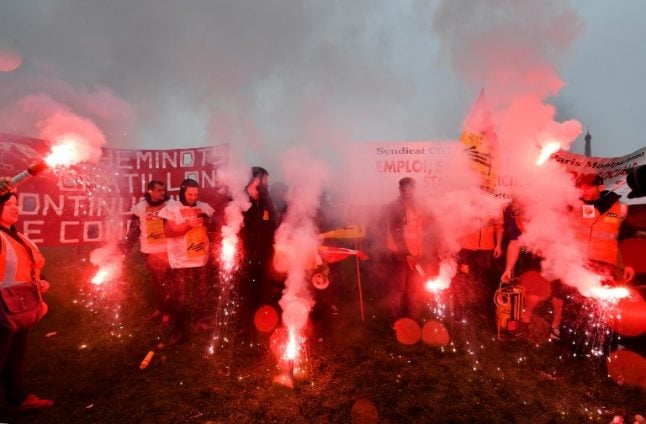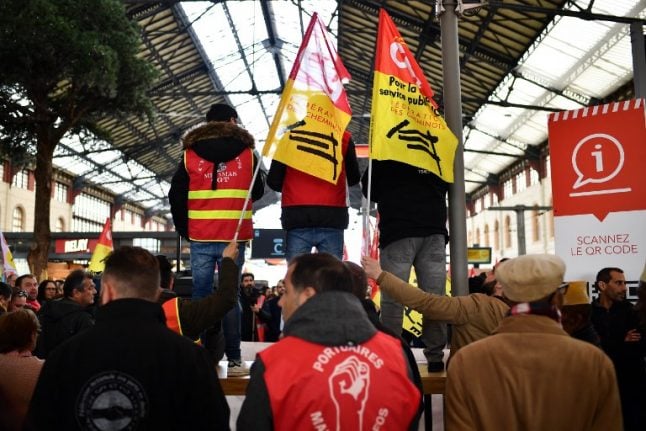SNCF have lodged official complaints over some 50 acts of sabotage on train lines during Monday's day of strike action by rail workers.
Fewer and fewer rail staff have been taking part in the strikes as the weeks have gone on but Monday, the 18th day of the ongoing rolling strikes, was dubbed “the day without rail workers” and saw a jump in the number of rail workers downing tools compared to recent strike day.
The UNSA union had said it was “vital to deal a heavy blow” to pressure the government into making concessions.
But it appeared some strikers resorted to illegal action in order to create chaos on the trains.
Cables were also mysteriously cut in the southern port of Marseille that led to a power outage across the whole of the St Charles train station and overhead cables were also cut in the northwestern region of Normandy, in what the SNCF said appeared to be deliberate acts of sabotage aimed at further snarling traffic.
“There were about fifty incidents of varying levels,” said a spokesperson for SNCF.
“They ranged from disturbances at level crossings to losing keys to offices, and of course the power cut in Marseille and the cutting of an overhead line in Normandy, ” said the spokesman.
SNCF described the cutting of the overhead cable in Normandy as a ” a highly technical deliberate act”.
“It was obvious it was an act of sabotage,” said the spokesperson before adding that French police will investigate the matter.
Even after power was restored in Marseille, rail workers and protesting students took to the tracks to block trains.

The SNCF believe these militant acts are a sign that the ongoing conflict over between unions and the government over plans to reform the heavily indebted SNCF is petering out.
“Generally these kind of acts happen at he end of a conflict,” said SNCF's deputy general director Mathias Vicherat. “We consider that these acts are a misapplication of the right to strike.”
While Monday saw a jump in participation, the percentage of rail workers taking part in the strike had fallen to 14.5 percent. Unions also know that public opinion and time appears to be against them.
Opinion polls suggest a majority of French voters back the reforms. The lower house of parliament has already given them the green light, and the Senate is to vote on them this month.
But with the strikes to run until the end of June, rail passengers can expect more disruption caused by sabotage in the weeks to come.



 Please whitelist us to continue reading.
Please whitelist us to continue reading.
What militant trade unionist don`t seem to learn and understand is that strikes and illegal action achieves nothing but anger and resentment from the companies and the general public.
Everybody,in their working lives, does a little bit more than they are paid to do. A work to rule, in any dispute, disrupts the smooth running of any company and achieves results without too much antagonism.
Try it, believe me, it works.